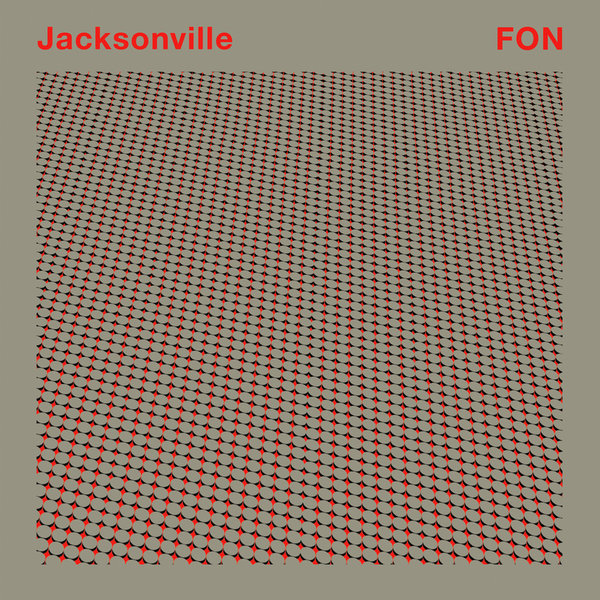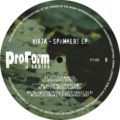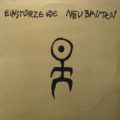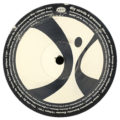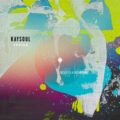Idit Frenkel: DJ, radio broadcaster and music journalist from Tel Aviv selects our latest playlist
A member of the LATER crew, a self confessed cat owner who likes to dream of many things, Idit Frenkel grew up Raanana, a sleepy suburb of Tel Aviv with a middle-class family: mom, dad, two sisters. The middle child, she was born and spent her first years there and at 15, left for an environmental boarding high-school in the south of Israel: a place called Sde Boker.
Whilst at an early age she was 100% sure she was going to be the next David Attenborough. In her words: “I was really into nature, hiking and plants and stuff, so around 5 years old, I told my parents I’m going to study there and they were like – yes dear, of course.”
When the time arrived, she held them to their word. Not because she was still into being a world famous biologist. At 15, it was clear she was going to be a DJ and a graphic designer and simply wanted to get as far away as possible from the sleepiness of the city she grew up in.
“I still consider this to be one of the best decisions I took in life.”
How did you get into music as a youngster?
“Radio. No doubt.
If you grew up in the 80s – in Israel – then this is what you had for quite some time. There were only two major radio stations that mattered (in this story anyway) – a more commercial one which played the top 40 from the UK and US, as well as Israeli pop: including tons of dance music, because that’s what was in the charts. When hearing ‘French Kiss’ or ‘Good Life’ in real time, it was not with the understanding of who Lil Louis or Kevin Saunderson were. I had no idea what Detroit techno was or what House music is. That came later.
The other station was operated by the IDF (and still is), and considered the more prestige one. Playing all kinds of rock and mainstream pop (remember 80s mainstream – the golden age of pop music and cold war albums – was actually rather good). They also had special shows for the more alternative and indie stuff.
It was between these two stations, specific shows and djs from each one – that I started to develop the obsession for music, and hunger to know everything you can know.”
What led you on to discover electronic music then?
“It was more of a natural development of connecting the dots then a revelation moment, because as was mentioned, the proto dance music – as we know it – was all around when I grew up listening to the radio.
However, while maturing my taste and knowledge, all kinds of other inputs emerged such as music magazines and music journalism in general.
I developed from reading Smash Hits (when I could get my hands on one) to the NME, Melody Maker and later The Face and such. That’s just a generational thing. Most music lovers from my age group had a similar path.
Also, from a local perspective, the Israeli mainstream papers were covering the big names, but local newspapers – from Tel Aviv and Jerusalem – were really into pushing indie and alternative and were the first to write about electronic music as well.
When the 80s were coming to their end, I was only reading about the Summer of Love in the papers, but had no idea what that really meant. However – I was at the right age at the right time to listen to the Stone Roses, Happy Mondays and Primal Scream and knew in my heart that these sounds are actually a place I belonged to.”
Who were your biggest influences at the time?
“I’d say a list of Israeli radio DJs and music journalists who operated around the time. The two quintessential ones were Malkiel Grossman and the late Eithan Tavor. Both club DJs from Jerusalem who moved to Tel Aviv and from for the first half of the 90s had a radio show called ‘The Dance Party’.
That wasn’t just for the top 40 stuff. This was pure underground shit – playing 4 hours of it. There was nothing even remotely close to it back then. First hour was the latest Rap and Hip-Hop, 2nd and 3rd of House and Techno, the 4th for Chillout and Ambient.
After that, everything fell into place: names, tracks, labels, genres and djs.
Add too that, 1991 was the year when cable TV finally arrived in Israel. One day there was nothing and the next we had EVERYTHING (in a way). Specifically shows like Party Zone, Chill Out Zone, 120 Minutes and Yo!MTV Rap. This must sound so peripheral when you could just open BBC radio and listen to John Peel, or join a soundsystem and travel the UK. But for anyone who starved for any piece of music knowledge – in the pre-internet days – it meant a great deal.”
What were your first experiences of going to clubs/parties?
“The funny thing about the 80s is that we always had a DJ at birthday parties while we were still at school, and you would see those old dudes in amusement parks and national celebrations playing the hits. So, I remember quite clearly thinking – ‘well, I know way more songs then this dude, so I can do what he does – but better.’ I can’t really label those days as propper clubbing but it did make me realise I loved dancing and how much the experience makes me happy.
It wasn’t until junior-high when we stopped going to the local youth-disco and began attending Friday nights in a club called ‘Time-Out;, in our neighbouring suburb.
That’s when I felt the call for real. It was such a proper venue! I remember being super impressed how the DJ booth was placed inside a car, the club was dark and sexy. The DJ played everything from new-wave to high-energy with decent mixing skills. From there it was just – ok, where do we go next.
By the age of 17. I was a regular in the Tel Aviv early party scene and at 21, I moved to live there.”
At what point did you decide to start DJing then?
“I’d say the mid 2000’s. It took years for me to finally – one, have the courage and skills. Two, own the record collection I could stand behind. I was collecting vinyl and partying and involved in events – for a long time but really only started Djing towards the end of my 20s. A lot of it was involved with meeting like minded people I could share the passion with and learn how to DJ from.”
Which artists/labels really struck a chord with you?
“The early days? Well you know – Creation, Factory, 4AD, Mute, Warp, XL… then Strictly Rhythm, Nervous, Madhouse, Nite Life, Shelter… then Prescription, Cajual, King Street, Classic… and UR, Planet E, Transmat, Ferox and Basic Channel.
Discovery wasn’t made by going to record stores, digging and getting the newest stuff – there were only a few vinyl shops to ever try operate in Tel Aviv and they all failed eventually (too small of a market and mostly Trance lovers).
A lot of my early education was via CD compilations and mix-cds. These were easier to get a hold on and I could always persuade a friend to buy one while I buy another to double the outcome :)”
How did you evolve into writing about music and broadcasting?
“Writing has to do with my close friend, long time collaborator and fellow dj – Niv Hadas, and broadcasting was an opportunity.
Niv and I met around 2004, he was already a well established music journalist and working DJ.
Club culture in the early 2000s in Tel Aviv was in its 2nd and moving towards a 3rd phase. From 90s early House and Techno parties, to the takeover of Trance and Progressive towards the end of the decade, into the inevitable deviation into many small music scenes. The gap in numbers was – and still is – huge. Thousands of people were into Trance and Progressive, and a few hundreds were into everything else.
We kinda knew each other, but it wasn’t until luck and the first reunion of the Pixies that we found ourselves together with a group of mutual friends, travelling to Barcellona to see the Pixies gig. From that trip we came back best friends. I think having a very similar upbringing – he too grew up in a sleepy suburb, listening to radio and scrapping British music magazines – combined with us both being fanatic fans of the Pet Shop Boys and Depeche Mode. It was a fertile ground for all kinds of shenanigans.
One, we started to DJ together, just playing what we love wherever we can – it didn’t matter how unpopular House & Techno were at the time. Two, by 2010 we decided we needed to have a music blog, in Hebrew – about electronic music, parties and everything in between.
It wasn’t that the internet wasn’t full of music blogs – in fact these were the golden days of music blogging all around, but having one in Hebrew made all the difference. The blog name was Tapud. It stands for “potato” in Hebrew (undoubtedly the best food in the world).
We ran the blog for 5 years, it was super demanding and super rewarding. We committed and we made an impact (we believe). And around its 3rd year we decided to take this to the next level – and start a monthly event ‘LATER’.
Broadcasting came to me when two local radio DJs who were running a show in the IDF station for 13 years, called ‘The Edge’ for all kinds of alternative music, got informed their show was being cancelled. So, they started an online radio station – under the same name – to which Niv and I were invited to have a bi-weekly dance show of our own (the blog was already running for a while).
We did that together for 2 years, then he left the show to me and I ran it for 3 more – and had a blast. However after 5 year,s life became too demanding to have a day job, a night job, a monthly event AND a radio show – so the radio and I parted on good terms.”
Tell us more about your view of Electronic music in Israel:
“Firstly, you need to understand there really isn’t any real electronic genre you can say is Israeli – with the exception of Trance. In fact, you could say Trance is the only real Israeli music, because it became so big and loved and popular here, that Israeli Trance producers changed the genre’s DNA.
Now – I’m not a Trance devotee. Never was. From the start I could not relate to it and wasn’t much of a fan of the culture around it. But I have nothing but respect for the people who do. Trance music in Israel is tribal, it’s like a huge family of almost 3 generations who live by its core values, aesthetics and lifestyle.
Secondly, a unique aspect of the Israeli electronic scene is that there really isn’t any music industry around it. There were only a few electronic music labels to release original music, but never enough to feed the beast.
However – there is what many people consider a sound to Tel Avi, and that has everything to do with the local and international success of Red Axes. Who created their own unique sound signature (sort of Progressive Punk) and cultivated a thriving music community around them.
Again, it’s not my cup of tea but nothing but love and respect for them both (they’re super cool guys and fun to be with).”
What was the scene like back then compared to now?
“Well, there was no social media for once, and no mobile phones and all that. And it was harder to get new records and keep up with the latest and I guess we were more appreciative when we did manage to do that.
Although – if I’m being honest – each generation is just experiencing what it’s like to be a music lover at their own terms and conditions, isn’t it? I could never get into the mind of a 20 year old today – having every piece of music ever made only a click away. Just as she/he can never understand what it was like not to have that.
They look at us and say – ‘oh those days must have been amazing!’ and I answer – ‘you have everything to make it amazing now. And, some do…”
Thank you so much for sharing all this amazing music with us for Innate’s 14th playlist 🙂
“My pleasure!”
What was your idea behind it?
“This selection is a fairly good sample of what I like to play today. Some tracks are from the last few years, from producers and labels I follow – and some I discovered much later than their original release date. At this moment of my personal development as a DJ, this is what I look for – tracks with deepness, intensity and a sense of emotion you can play at the peak of a night or (preferably) towards the break of the morning after.
I hope you’ll like it. Thank you so much for the invite…”

